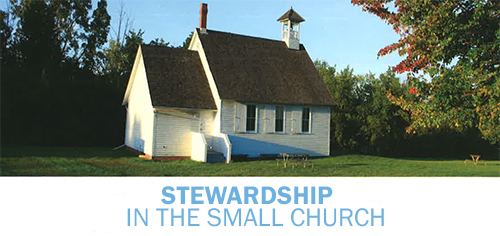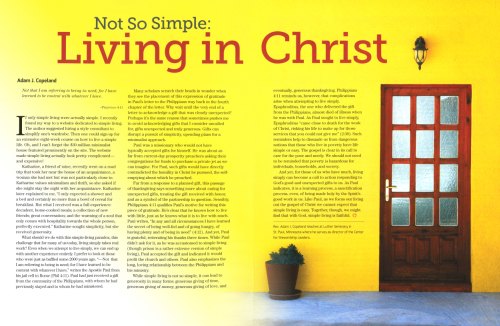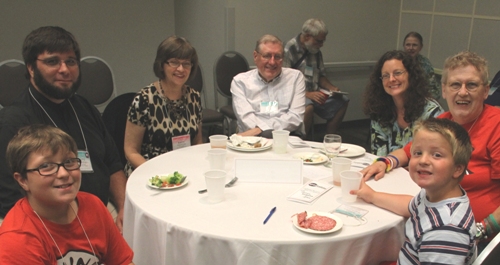
A reflection by H. Fred Bernhard
“Tell those rich in this world’s goods to quit being so full of themselves and so obsessed with money: which is here today and gone tomorrow. Tell them to go after God, who piles on all the riches we could ever manage—to do good, to be rich in helping others, to be extravagantly generous. If they do that they’ll build a treasury that will last, gaining life that is truly life” (1 Timothy 6:18-19, The Message).
In 1995 my wife and I were invited to attend a stewardship conference. While there, I experienced a mindset change from scarcity to abundance, realizing that we as Americans are far richer than other peoples around the world. It changed my whole perspective on how I view wealth and material possessions.
Small congregations usually view themselves as congregations with limited resources, both financial and in people skills. Pastors of these congregations hear these responses: “We can’t do that; we don’t have enough money.” “We don’t have the time to do that; all of us are already too busy.” “We’re not like the big church down the street. Let them do that.”
From my own experience, I can testify that a bigger worshiping community does not mean a more effective church. Size may make multiple programs possible, but congregational vitality can be achieved in congregations of all sizes.
The common denominator is passion. Congregations who possess passion know that they can make a difference for Christ in their community and around the world. They know that, no matter how small, they can do big things for God. The secret is a passion for a purposeful, mission-driven, congregational life. Persons are drawn to such churches because they want to serve.
A mission committee struggled for weeks trying to come up with ways to buy one heifer for Heifer International. With a little help from the pastor, the congregation caught the vision and turned it into a passion for a mission. The result was 32 heifers purchased and donated to Heifer International.
That congregation experienced a mindset change: from scarcity to abundance. What no one thought possible became a reality when they caught the vision and their compassion fulfilled the mission. In simple terms, they put their hands where their mouths were. It’s a spiritual condition, isn’t it? Giving isn’t about the receiver or the gift but the giver.
It’s a sign of our spiritual discipline. We give because it’s the only concrete way we have of saying that we’re glad to be alive and well. Giving is a way of taking the focus off the money we make and putting it back where it belongs—on the lives we lead, the God we serve, the families we raise, the communities which nurture us. Our spiritual condition can be summed up with this prayer: “No matter what we say or do, God, this offering is what we think of you.”
When your congregation, however small, puts its trust in God and changes your attitude from scarcity to abundance, amazing things will happen—things beyond your wildest imagination. Just ask that church’s mission committee!
Fred Bernhard is an ordained minister in the Church of the Brethren and has served as a pastor and interim pastor in many congregations.
This reflection was originally published in Giving magazine, produced by the Ecumenical Stewardship Center. E-mail ebrethren@brethren.org to receive a complimentary copy of the 2017 issue of Giving magazine.




